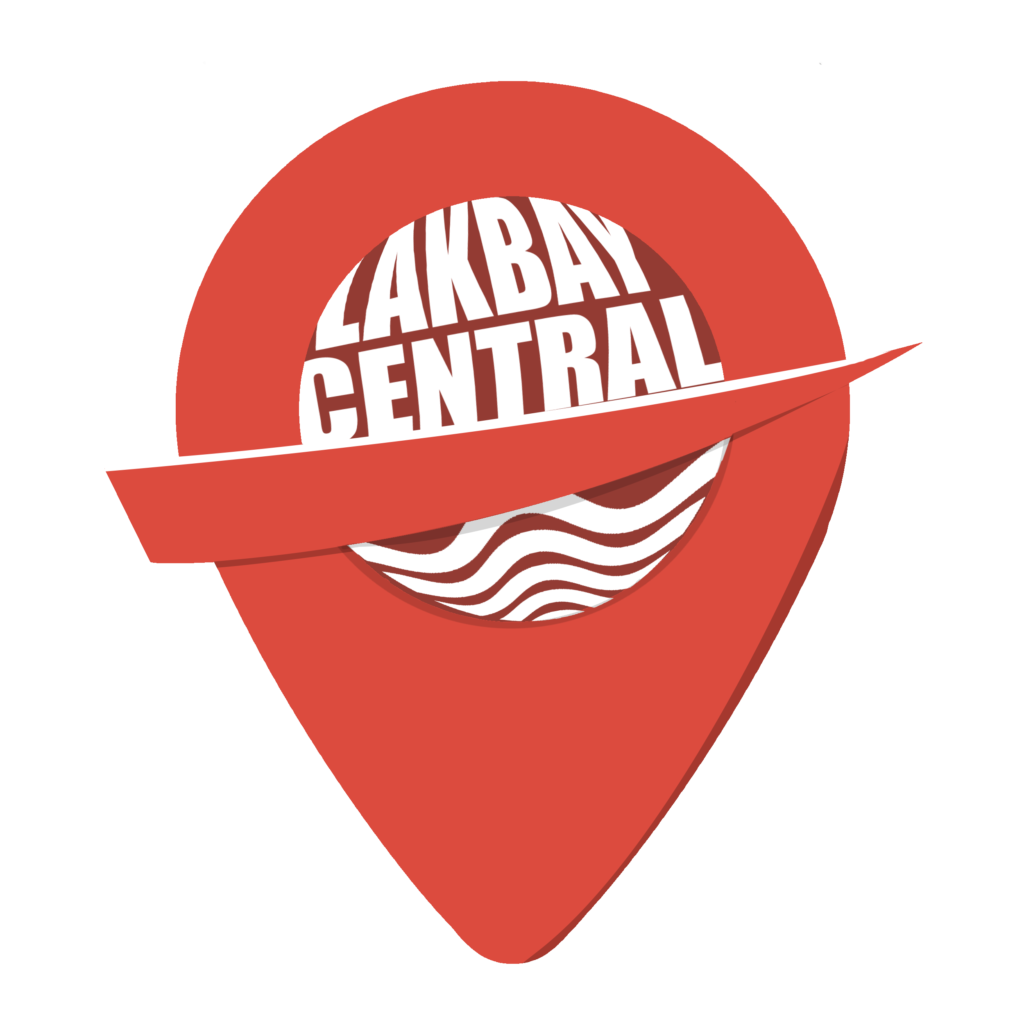
100 Easy-to-Learn Bisaya Words for Tourists
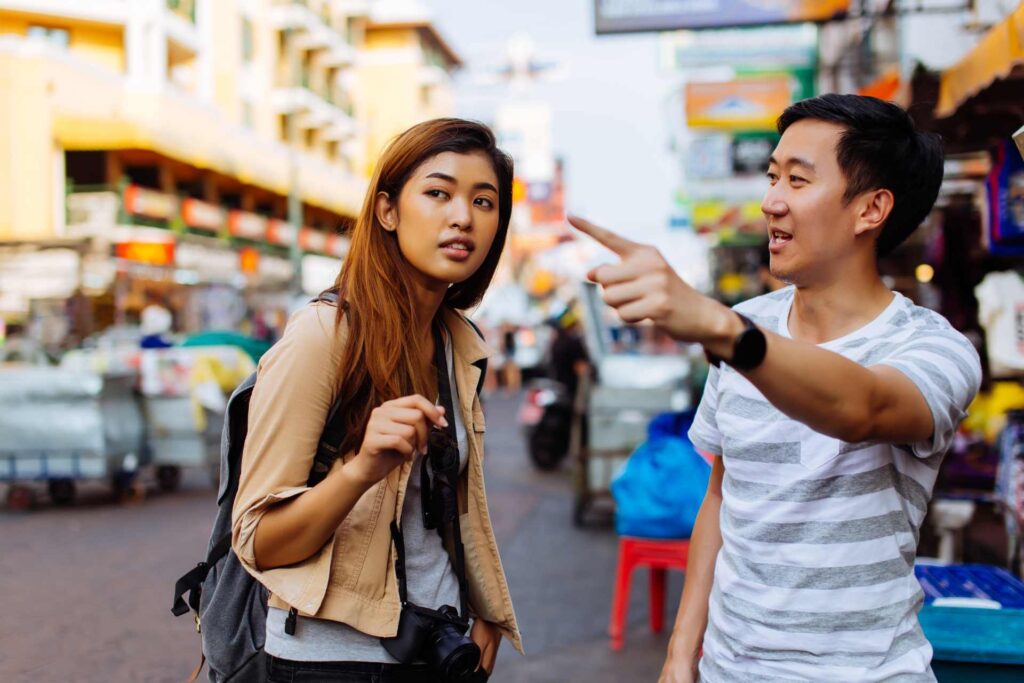
Heading to General Santos or SOX and don’t speak a lick of Bisaya?
No worries! This article provides essential “Bisaya words for tourists.” Whether you’re a non-Bisaya-speaking Filipino or a foreign traveler, this guide is your lifeline.
Bookmark it now, and have these words at your fingertips whenever you need a quick language assist.
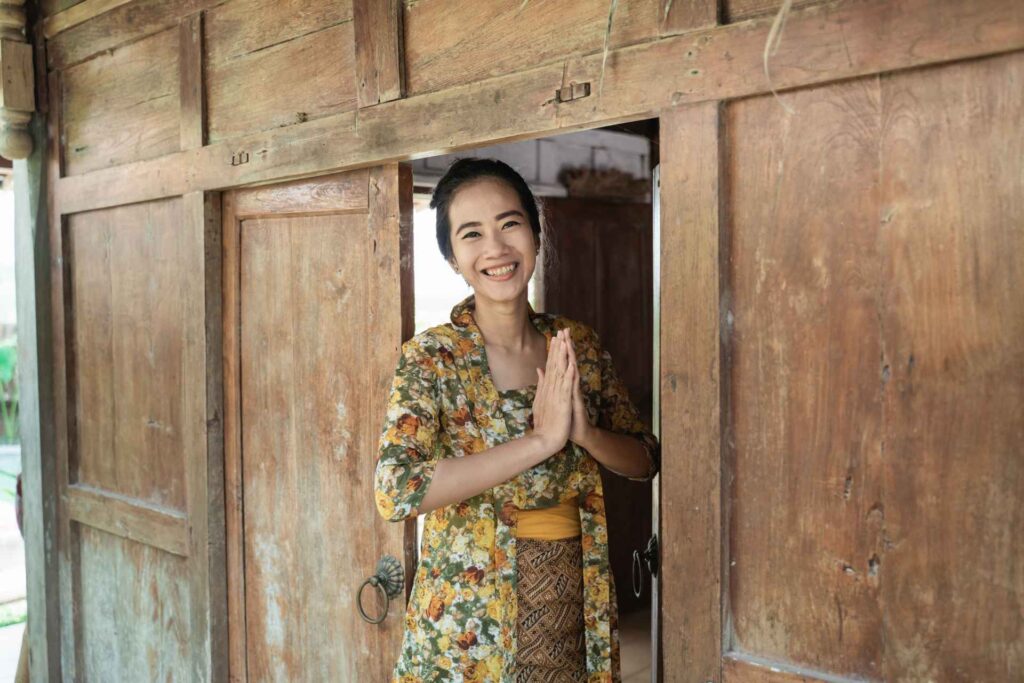
Basic Greetings and Politeness
Connecting with locals becomes a breeze when you master basic greetings and expressions. Learning these fundamental Bisaya terms will help you foster goodwill, showcase respect, and possibly even bag a local tip or two.
Maayong buntag (Good morning) – mah-ah-yong boon-tag
“Maayong buntag! Kumusta ka?” (Good morning! How are you?)
Maayong hapon (Good afternoon) – mah-ah-yong hah-pon
“Maayong hapon, sir.” (Good afternoon, sir.)
Maayong gabii (Good evening/night) – mah-ah-yong gah-bee-ee
“Maayong gabii. Asa ang otél?” (Good evening. Where is the hotel?)
Salamat (Thank you) – sah-lah-mat
“Salamat sa imong tabang.” (Thank you for your help.)
Palihog (Please) – pah-lee-hog
“Palihog hatagi ko og tubig.” (Please give me water.)
Oo (Yes) – oh-oh
“Oo, gusto ko ana.” (Yes, I want that.)
Dili (No) – dee-lee
“Dili, salamat.” (No, thank you.)
Unsa imong pangalan? (What is your name?) – oon-sah eem-ong pang-ah-lan
“Unsa imong pangalan?” (What is your name?)
Ako si [Name] (I am [Name]) – ah-ko see
“Ako si Maria.” (I am Maria.)
Pasayloa ko (I’m sorry) – pah-sah-ylo-ah ko
“Pasayloa ko, na-bangga-an tika.” (I’m sorry, I bumped into you.)
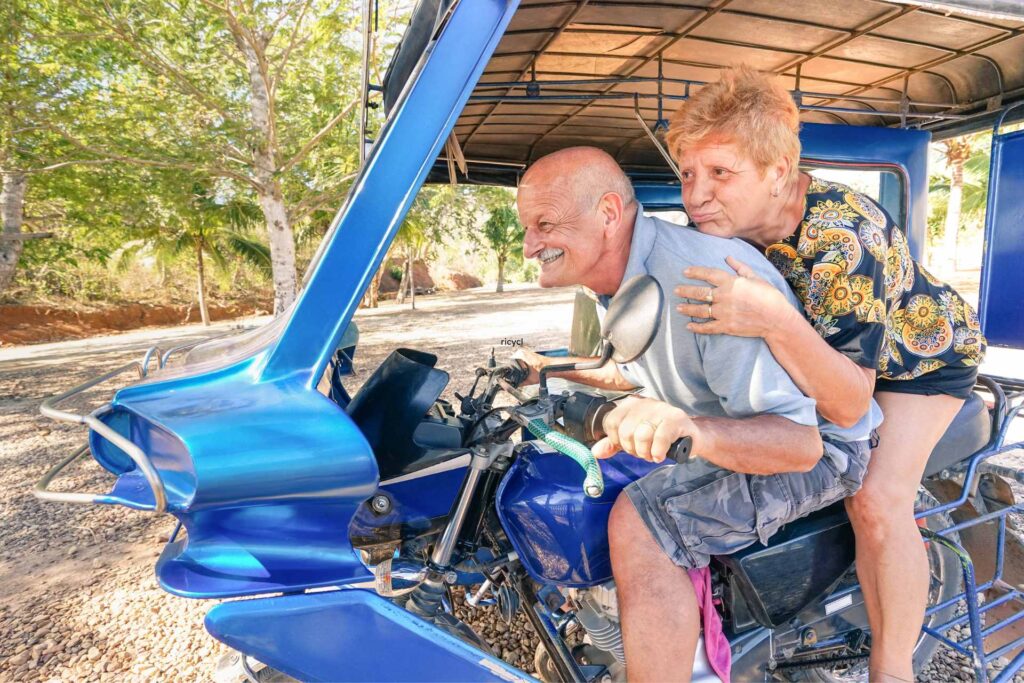
Directions and Transportation
Save time and avoid tourist traps by asking locals for directions. Grasping these Bisaya directional terms keeps you on the right track and enriches your journey with unexpected discoveries.
Wala (Left) – /ˈwah.lah/
“Liko sa wala pagkaabot sa tulay.” (Turn left after the bridge.)
Too (Right) – /ˈtoo-oh/
“Liko sa too sa unahan.” (Turn right up ahead.)
Diretso (Straight) – /diˈreht.so/
“Magdiretso lang ka.” (Just go straight.)
Hinto (Stop) – /ˈhin.toh/
“Hinto sa pula nga suga.” (Stop at the red light.)
Larga (Go) – /ˈlar.gah/
“Larga na ta!” (Let’s go!)
Bus – /boos/
“Asa ang estasyon sa bus?” (Where is the bus station?)
Trisikad (Pedal cab) – /ˈtri.see.kad/
“Pwede ba ko pasakay sa trisikad padulong mercado?” (Can I ride the pedal cab to the market?)
Taxi – /ˈtak.see/
“Palihog tawag og taxi.” (Please call a taxi.)
Estasyon (Station) – /esˈtah.syon/
“Duol ra ang estasyon diri.” (The station is near here.)
Saan? (Where?) – /ˈsah-an/
“Saan ang CR?” (Where is the restroom?)
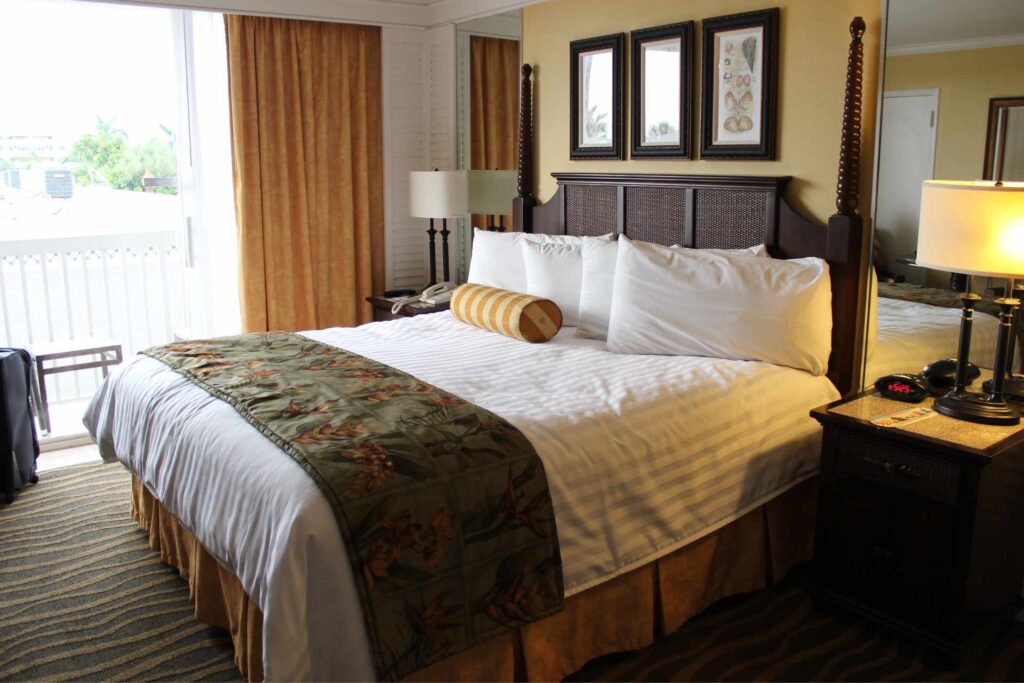
Accommodation
Ensure your stay is comfortable and suits your preferences. With these Bisaya terms, you can specify your needs, ask about amenities, and ensure that your lodgings feel like a home away from home.
Kapihan (Café/Coffee shop) – /kaˈpi.han/
“Asa ang pinakaduol nga kapihan diri?” (Where’s the nearest café here?)
Reserbasyon (Reservation) – /ˌres.erˈbah.syon/
“Aduna koy reserbasyon sa ngalan ni Juan.” (I have a reservation under the name Juan.)
Kwarto (Room) – /ˈkwar.toh/
“Pila ang isa ka kwarto karon?” (How much is a room now?)
Banyo (Bathroom) – /ˈban.yoh/
“Asa ang banyo?” (Where is the bathroom?)
Higdaanan (Bed) – /higˈdaa.nan/
“Ang higdaanan dako ug komportable.” (The bed is big and comfortable.)
Yabi (Key) – /ˈya.bee/
“Palihog hatag ang yawi sa kwarto.” (Please give the room key.)
Resepsyon (Reception) – /ˌres.epˈsyon/
“Pakita ko sa resepsyon.” (Take me to the reception.)
Gawas – /ˈga.was/
“Inig gawas nako.” (When I come out?)
Hayahay (Comfortable) – /ˈha.ya.hay/
“Diri ta kay hayahay.” (Let’s be here it’s comfortable.)
Tubig (Water) – /ˈtoo.big/
“Palihog hatagi ko og tubig.” (Please give me some water.)
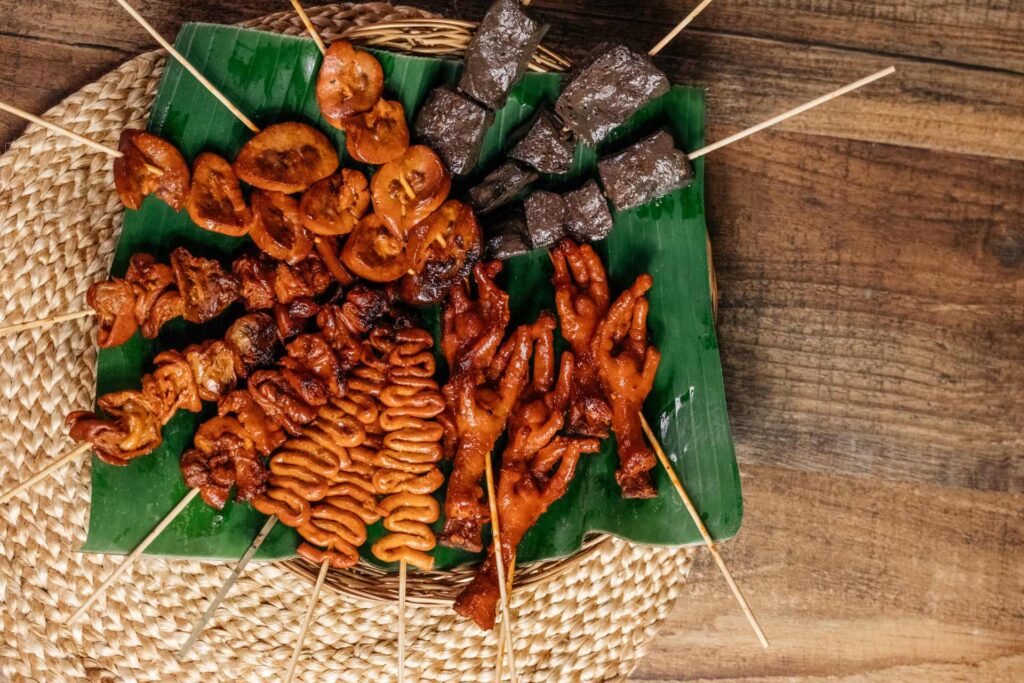
Dining and Food
Don’t get lost in a menu or miss out on a regional specialty. These food-related Bisaya words ensure you savor the real flavors of the region and order with confidence.
Tubig (Water) – /ˈtoo.big/
“Puede ko mangayo og tubig?” (Can I have some water?)
Kan-on (Rice) – /kaˈn-on/
“Dako pa ko’g kagutom, palihog dugang kan-on.” (I’m still hungry, please give more rice.)
Isda (Fish) – /ˈis.dah/
“Unsa nga klase sa isda ang imong gustong orderon?” (What kind of fish would you like to order?)
Baboy (Pork) – /baˈboy/
“Dili ko mokaon og baboy.” (I don’t eat pork.)
Manok (Chicken) – /maˈnok/
“Palihog, usa ka order nga grilled manok.” (Please, one order of grilled chicken.)
Halang (Spicy) – /ha’lang/
“Ayaw palabi kaon og halang.” (Don’t eat too much spicy food.)
Tam-is (Sweet) – /ˈtam-is/
“Tam-is kaayo ang leche flan.” (The leche flan is very sweet.)
Gutom (Hungry) – /ˈgu.tom/
“Gutom na ko.” (I’m hungry.)
Uhaw (Thirsty) – /ˈu.haw/
“Uhaw kaayo ko, puede pa-abot og tubig?” (I’m very thirsty, can I have some water?)
Kan-anan (Restaurant) – /kanˈah.nan/
“Asa ang maayong kan-anan diri?” (Where is a good restaurant here?)
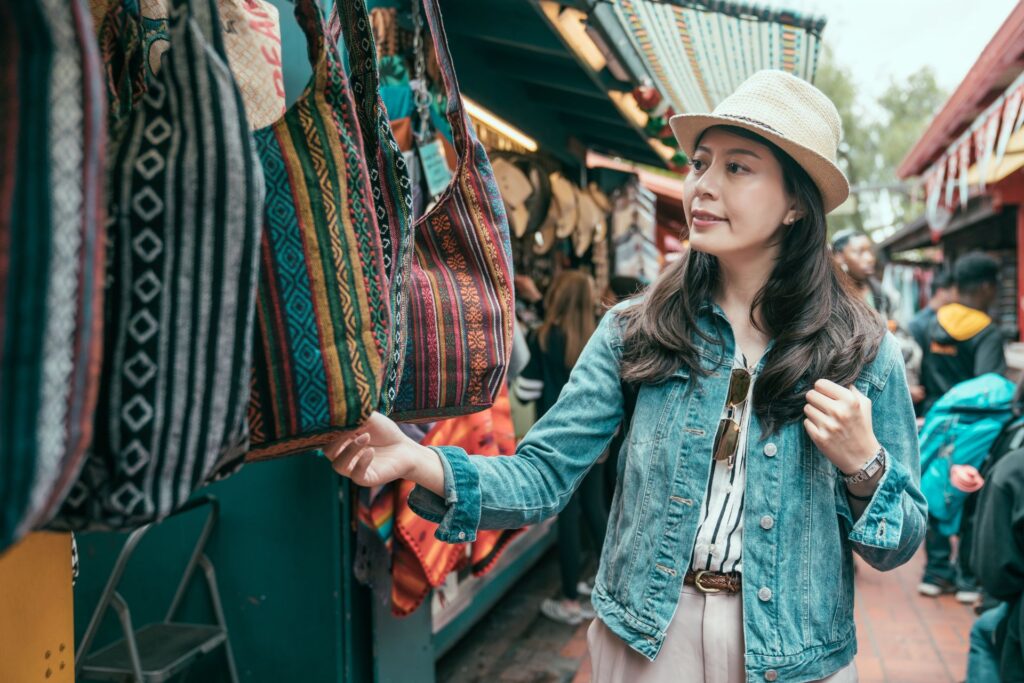
Shopping and Transactions
Mastering these Bisaya terms for shopping and transactions ensures you get the right souvenirs, snag good deals, and navigate commerce like a local. Whether haggling or simply checking out, these words will be your best companion for a seamless shopping spree.
Tagpila? (How much?) – /tagˈpi.la/
“Tagpila ni?” (How much is this?)
Mahal (Expensive) – /maˈhal/
“Mahal ra ba ning baga?” (Is this bag expensive?)
Barato (Affordable) – /baˈra.to/
“Barato ra ning t-shirt.” (This t-shirt is affordable.)
Hangyo (Discount) – /hangˈyo/
“Aduna bay hangyo kung cash ang bayad?” (Is there a discount if paid in cash?)
Tindahan (Store) – /tinˈda.han/
“Aduna pa bay iba nga tindahan diri?” (Is there another store around here?)
Palit (Buy) – /ˈpa.lit/
“Paliton ko ani.” (I’ll buy this.)
Baligya (Sell) – /baˈlig.ya/
“Baligya ko ani nga cellphone.” (I’m selling this cellphone.)
Abli (Open) – /ˈab.li/
“Abli pa ba ang tindahan?” (Is the store still open?)
Sarado (Close) – /ˈsa.ra.do/
“Sarado na ang botika.” (The pharmacy is closed.)
Sinsilyo (Change, as in coins) – /sinˈsil.yo/
“Wala koy sinsilyo, nota ra.” (I don’t have coins, just bills.)
Emergencies
Your safety is paramount. Knowing these emergency terms in Bisaya can be essential in a pinch, ensuring you get the help you need when every second counts.
Tabang! (Help!) – /taˈbaŋ/
“Tabang! Naligis ako!” (Help! I’ve been hit!)
Doktor (Doctor) – /ˈdok.tor/
“Kinahanglan ko og doktor.” (I need a doctor.)
Pulis (Police) – /ˈpu.lis/
“Tawag sa pulis, na-snatch ang akong bag!” (Call the police, my bag got snatched!)
Ospital (Hospital) – /osˈpi.tal/
“Dal-on siya sa ospital!” (Take him to the hospital!)
Tambal (Medicine) – /ˈtam.bal/
“Asa makapalit og tambal para sa sakit sa ulo?” (Where can I buy medicine for a headache?)
Sakit (Pain or Illness) – /ˈsa.kit/
“Sakit akong tiyan.” (My stomach hurts.)
Lipong (Dizzy) – /ˈli.pong/
“Lipong kaayo ko, puede mulingkod?” (I’m very dizzy, can I sit down?)
Disgrasya (Accident) – /disˈgra.shuh/
“Naa’y aksidente sa dalan.” (There’s an accident on the road.)
Botika (Pharmacy) – /boˈti.ka/
“Asa ang pinakaduol nga botika?” (Where’s the nearest pharmacy?)
Numbers and Time
From shopping bargains to catching a scheduled tour, numbers play a role. Equip yourself with these Bisaya terms to negotiate, plan, and ensure you’re always on schedule.
Usa (One) – /ˈu.sa/
“Usa ka pizza palihog.” (One pizza, please.)
Duha (Two) – /ˈdu.ha/
“Duha ka baso sa tubig.” (Two glasses of water.)
Tulo (Three) – /ˈtu.lo/
“Tulo ka piraso nga manok.” (Three pieces of chicken.)
Upat (Four) – /ˈu.pat/
“Alsaha ang upat ka maleta?” (Carry the four suitcases?)
Lima (Five) – /ˈli.ma/
“Lima ka tao sa kwarto.” (There are five people in the room.)
Unom (Six) – /ˈu.nom/
“Unom na oras sa buntag.” (It’s six o’clock in the morning.)
Pito (Seven) – /ˈpi.to/
“Pito ka buok ang akong apple.” (I have seven apples.)
Walo (Eight) – /ˈwa.lo/
“Walo ka tawo sa team.” (There are eight people on the team.)
Siyam (Nine) – /ˈsij.am/
“Siyam ka bulan ang pagbuhat sa bata.” (It takes nine months to make a baby.)
Napulo (Ten) – /naˈpu.lo/
“Napulo ka sapatos sa tindahan.” (There are ten shoes in the store.)

Attractions and Sightseeing
Make the most of the region’s attractions without missing a beat. With these terms, you’ll find top spots and discover hidden gems through local recommendations.
Baybayon (Beach) – /baɪˈba.jon/
“Gusto ko moadto sa baybayon.” (I want to go to the beach.)
Bukid (Mountain) – /ˈbu.kid/
“Mataas ang bukid diri.” (The mountain here is high.)
Busay (Waterfall) – /buˈsay/
“Nindot ang view sa busay.” (The waterfall view is beautiful.)
Museyo (Museum) – /muˈse.jo/
“Asa ang history museyo diri?” (Where is the history museum here?)
Nindot – /nin.doot/
“Nindot ni nga lugar.” (This place is beautiful.)
Pultahan (Entrance) – /pulˈta.han/
“Diin ang pultahan padulong sa kwarto?” (Where is the entrance to the room?)
Gawasanan (Exit) – /ˈga.wa suh-nan/
“Asang gawasanan ani nga building.” (Where is the exit to this building?)
Giya (Guide) – /ˈgij.a/
“Kinahanglan nato ang giya para dili ta maligaw.” (We need a guide so we don’t get lost.)
Mapa (Map) – /ˈma.pa/
“Palihog hatag og mapa sa siyudad.” (Please give a map of the city.)
Tan-aw (View or Sight) – /ˈta.naw/
“Nindot ang tanaw gikan sa bukid.” (The view from the mountain is nice.)
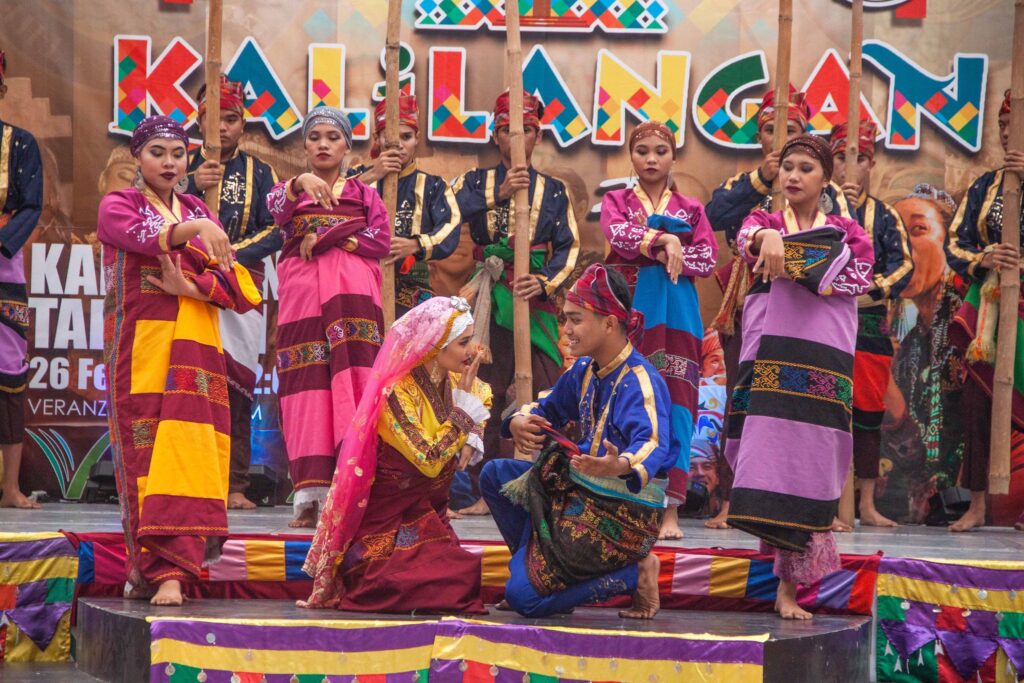
Culture and Festivities
Submerge yourself in the vibrant local scene without feeling like an outsider. These Bisaya words will help you appreciate cultural nuances, partake in festivities, and truly immerse in the region’s heart and soul.
Pista (Festival) – /ˈpis.ta/
“Nindot ang pista diri kada tuig.” (The festival here is great every year.)
Sayaw (Dance) – /ˈsa.yaw/
“Mag sayaw ta sa musika!” (Let’s dance to the music!)
Tugtog (Music) – /ˈtug.tog/
“Nindot ang tugtog sa banda.” (The band’s music is good.)
Tradisyonal (Traditional) – /tra.diˈsjo.nal/
“Tradisyonal nga luto ang lechon.” (The lechon is traditionally cooked.)
Kasaysayan (History) – /ka.saɪˈsa.jan/
“Ang kasaysayan sa siyudad maoy nindot nga matun-an.” (The city’s history is great to learn about.)
Pagsadya (Celebration) – /pag’ suh-ja/
“Dako ang pagsadya karon nga bulan.” (There’s a big celebration this month.)
Kostyum (Costume) – /ˈkos.tjum/
“Palit ko og kostyum para sa Halloween.” (I’ll buy a costume for Halloween.)
Kanta (Song) – /ˈkan.ta/
“Unsay imong paborito nga kanta?” (What’s your favorite song?)
Sining (Art) – /ˈsi.niŋ/
“Daghan og sining sa museyo.” (There’s a lot of art in the museum.)
Handumanan (Souvenir) – /han.duˈma.nan/
“Palit ko og handumanan para sa akong pamilya.” (I’ll buy souvenirs for my family.)
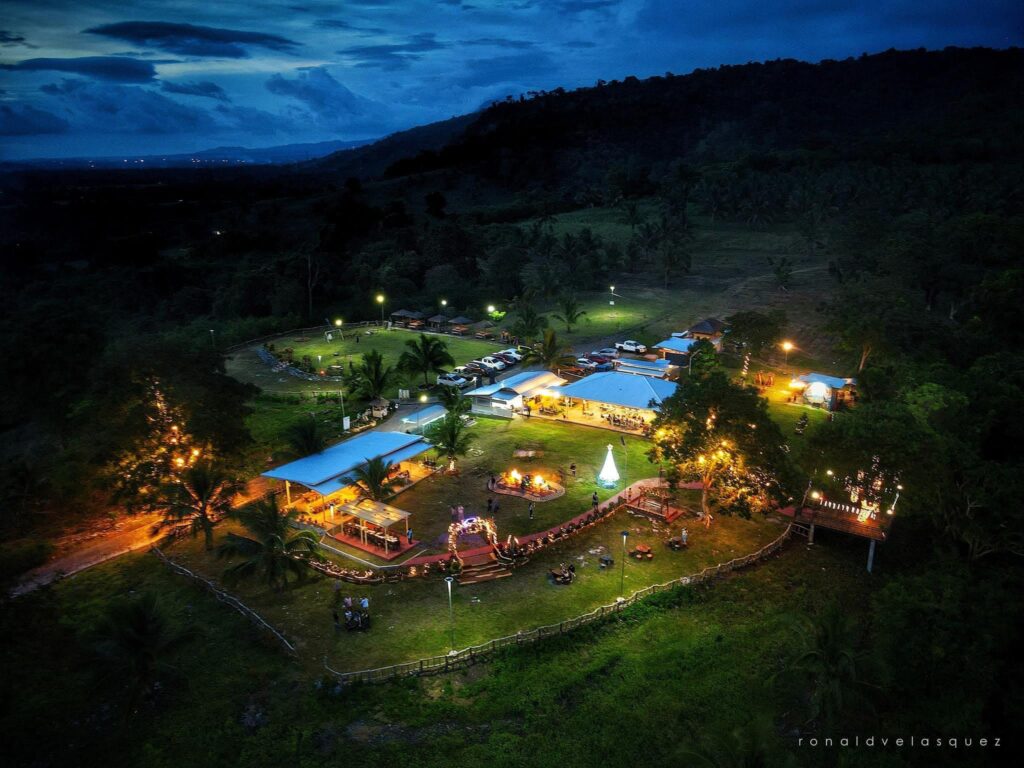
Nature and Environment
Experience nature in its fullest and respect the environment. These Bisaya words allow you to delve deeper into natural wonders, inquire about local fauna and flora, and tread lightly in this beautiful world.
Kahoy (Tree) – /ˈka.hoj/
“Ang kahoy duol sa akong balay.” (The tree is near my house.)
Bulak (Flower) – /ˈboo-lak/
“Nindot ang hulbot sa hardin.” (The flowers in the garden are beautiful.)
Suba (River) – /ˈsu.ba/
“Ayaw paglangoy sa suba, daku ang sulog.” (Don’t swim in the river, the current is strong.)
Adlaw (Sun) – /ˈad.law/
“Init kaayo ang adlaw karon.” (The sun is very hot today.)
Ulan (Rain) – /ˈu.lan/
“Ga-ulan, kinahanglan nato ang payong.” (It’s raining, we need an umbrella.)
Hangin (Wind) – /ˈha.ŋin/
“Kusog ang hangin sa baybayon.” (The wind at the beach is strong.)
Bato (Rock/Stone) – /ˈba.to/
“Mag-ingat sa mga bato samtang naglakaw sa bundok.” (Be careful of the rocks while hiking the mountain.)
Dagat (Sea/Ocean) – /ˈda.gat/
“Gusto ko magswimming sa dagat.” (I want to swim in the sea.)
Prutas (Fruit) – /ˈpru.tas/
“Gusto ko og prutas gikan sa palengke.” (I want fruits from the market.)
Mananap (Animal) – /ˈma’nuh-nap/
“Daghan og mananap sa zoo.” (There are many animals in the zoo.)
Bisaya words for tourists in English sentences.
If you find the examples above too hard to follow because they are used in full bisaya sentences, then you will love the following examples.
We’ve created examples that use the Bisaya word inside an English sentence.
Basics
- Salamat (Thank you) – “Salamat for helping me out.”
- Oo (Yes) – “Oo, I’d like some coffee.”
- Dili (No) – “Dili, I’m not hungry.”
- Maayong Buntag (Good Morning) – “Maayong Buntag! It’s a bright day!”
- Maayong Hapon (Good Afternoon) – “Maayong Hapon, how was your day?”
- Maayong Gabii (Good Evening) – “Maayong Gabii, enjoy your dinner!”
- Paalam (Goodbye) – “Paalam, see you tomorrow!”
- Unsa (What) – “Unsa ang name ani nga food?”
- Asa (Where) – “Asa ang nearest ATM?”
- Tagpila (How Much) – “Tagpila ning souvenir?”
Food and Drinks
- Kan-on (Rice) – “I’d love some kan-on with my grilled fish.”
- Tubig (Water) – “Can I have a glass of tubig, please?”
- Kape (Coffee) – “Kape is a must for me every morning.”
- Pan (Bread) – “This pan is so fresh and delicious.”
- Isda (Fish) – “The grilled isda here is fantastic.”
- Baboy (Pork) – “I don’t eat baboy for dietary reasons.”
- Baka (Beef) – “Do you have a baka steak available?”
- Manok (Chicken) – “Manok adobo is my favorite dish!”
- Beer (Beer) – “One cold beer, please.”
- Prutas (Fruits) – “I’d like to buy some prutas for breakfast.”
Directions
- Tu-o (Left) – “Turn tu-o after the next traffic light.”
- Tuo (Right) – “The shop is on your tuo.”
- Diretso (Straight) – “Just keep going diretso for another mile.”
- Atbang (Opposite) – “The bookstore is atbang the cafe.”
- Likod (Behind) – “The parking lot is likod the building.”
- Kilid (Beside) – “The pharmacy is kilid the bakery.”
- Unahan (In Front) – “The bus stop is unahan the post office.”
- Sulod (Inside) – “The manager is sulod the office.”
- Gawas (Outside) – “Let’s meet gawas in five minutes.”
- Libot (Around) – “I took a walk libot the park.”
- Duol (Near) – “Duol ra ba ang mall from here?”
- Layo (Far) – “Your destination is layo pa.”
Accommodation
- Kwarto (Room) – “How much is a kwarto for two?”
- Banyo (Bathroom) – “Where’s the banyo in this restaurant?”
- Suga (Light) – “Can you turn off the suga before leaving?”
- Katre (Bed) – “The katre in this hotel is very comfy.”
- Kutson (Matress) – “May we ask for an extra kutson?”
- Aircon (Air Conditioner) – “Can you adjust the aircon temperature?”
- Telebisyon (Television) – “What channels does this telebisyon have?”
- Reserba (Reserve) – “I’d like to reserba a table for two.”
- Yabi (Key) – “Where’s the yabi to our room?”
- Salog (Floor) – “My room has a tiled salog.”
- Bintana (Window) – “Can I get a kwarto with a bintana view?”
- Pultahan (Door) – “The pultahan of the room is so huge?”
Transportation
- Sakay (Ride) – “Where can I sakay a bus to the city?”
- Bus (Bus) – “The next bus arrives in 20 minutes.”
- Taxi (Taxi) – “Can you help me hail a taxi?”
- Eroplano (Airplane) – “My eroplano ticket is for next week.”
- Barko (Ship) – “The barko journey takes about five hours.”
- Istasyon (Station) – “How far is the bus istasyon from here?”
- Singgol (Motorcycle) – “Renting a singgol is a great way to explore.”
- Bike (Bicycle) – “I’d love to tour the city on a bike.”
Emergencies
- Doktor (Doctor) – “I need to see a doktor immediately.”
- Pulis (Police) – “Call the pulis, my wallet was stolen!”
- Ospital (Hospital) – “Which way to the nearest ospital?”
- Tambal (Medicine) – “Is there a pharmacy to buy some tambal?”
- Sakit (Pain or Illness) – “I have sakit in my back after the hike.”
- Lipong (Dizzy) – “I’m feeling lipong, I need to rest.”
- Disgrasya (Accident) – “There was a disgrasya on the highway.”
- Botika (Pharmacy) – “Is there a botika around here?”
- Kalamidad (Emergency) – “In case of kalamidad, follow the exit signs.”
Numbers and Time
- Usa (One) – “I’ll take usa coffee, please.”
- Duha (Two) – “There are duha cats on the porch.”
- Tulo (Three) – “Tulo cookies are enough for me.”
- Upat (Four) – “The meeting is in upat days.”
- Lima (Five) – “Lima of us are attending the dinner.”
- Unom (Six) – “The show starts at unom PM.”
- Pito (Seven) – “There are pito steps to complete the process.”
- Walo (Eight) – “Walo students are in the advanced class.”
- Siyam (Nine) – “Siyam times out of ten, he’s right.”
- Napulo (Ten) – “The seminar lasts for napulo ka days.”
Attractions and Sightseeing
- Baybayon (Beach) – “The baybayon here is pristine and beautiful.”
- Bukid (Mountain) – “The hike up the bukid was challenging but worth it.”
- Busay (Waterfall) – “The busay is a must-visit spot.”
- Museyo (Museum) – “The art museyo has a fantastic collection.”
- Park – “Let’s relax in the park later.”
- Pultahan (Entrance) – “Where’s the pultahan to this building?”
- Gawasanan (Exit) – “Follow the signs for gawasanan in case of an emergency.”
- Giya (Guide) – “Hiring a giya will give us a deeper understanding of the place.”
- Turista (Tourist) – “There are many turista spots around this area.”
- Pangita (Search/Look for) – “I want to pangita more hidden gems in this city.”
Culture and Entertainment
- Sayaw (Dance) – “The sayaw performance tonight is something you shouldn’t miss!”
- Awit (Song) – “Their awit is deeply rooted in their culture.”
- Kanta (Sing) – “I’d love to kanta along if I knew the lyrics.”
- Dula (Game) – “Let’s play a traditional nga dula with the locals.”
- Pista (Festival) – “The pista here is famous for its vibrant colors and lively music.”
- Salida (Movie/Show) – “Is there a good salida showing tonight?”
- Libro (Book) – “Do you have a libro about local legends?”
- Kasaysayan (History) – “Understanding the kasaysayan helps in appreciating the culture.”
Nature and Environment
- Kahoy (Tree) – “That kahoy is believed to be a hundred years old.”
- Hulagway (Scenery/Picture) – “Capture that breathtaking hulagway for memories!”
- Kalasangan (Forest) – “The kalasangan here is home to diverse species.”
- Lawa (Lake) – “The stillness of the lawa brings such peace.”
- Bato (Rock/Stone) – “Look at that unique bato formation!”
- Langub (Cave) – “Exploring the langub requires an experienced guide.”
- Mananap (Animal) – “Be cautious; some mananap here can be quite elusive.”
- Bulak (Flower) – “The hill is adorned with colorful bulak in spring.”
- Dagat (Sea) – “The dagat offers some of the best diving spots.”
- Langit (Sky) – “The langit tonight is filled with stars, perfect for stargazing.”
All you need to do is open up your phone, bookmark this article, and voila—you have a handy guide at your fingertips. Relish in the joy of learning, one word at a time, and let your travels be filled with authentic conversations and heartwarming connections.